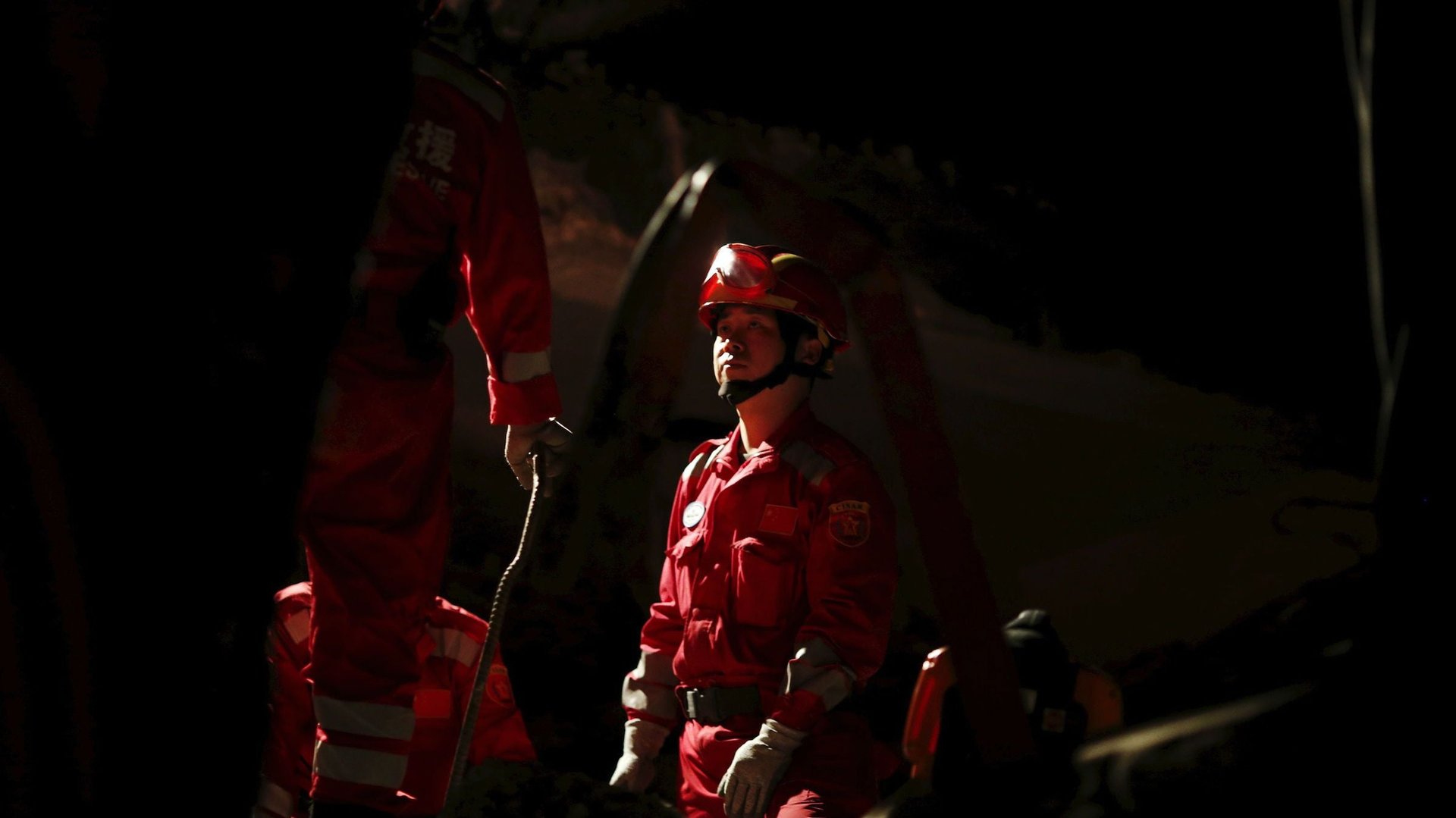Nepal is accepting earthquake aid from countries around the world—but not from Taiwan
After a 7.8 magnitude earthquake hit Nepal on Saturday, April 26, Taiwan—an island familiar with devastating earthquakes— rushed to assemble an emergency relief team, supplies, and $300,000 in financial assistance. But then on Sunday, the team was put on standby and Taiwanese officials were told that aid from neighboring countries was being prioritized, even as Japan, the United States, Israel, the United Kingdom, Finland, and others sent aid and personnel.


After a 7.8 magnitude earthquake hit Nepal on Saturday, April 26, Taiwan—an island familiar with devastating earthquakes— rushed to assemble an emergency relief team, supplies, and $300,000 in financial assistance. But then on Sunday, the team was put on standby and Taiwanese officials were told that aid from neighboring countries was being prioritized, even as Japan, the United States, Israel, the United Kingdom, Finland, and others sent aid and personnel.
Nepal said it would notify Taiwan when more help is needed.
The reason for the refusal is likely Nepal’s eagerness to stay in the good graces of China, which regards Taiwan as a renegade province, rather than a sovereign nation. Nepal, one of the world’s poorest countries, has increasingly depended on China for foreign investment and help for building much-needed infrastructure. Last year, China overtook India to be Nepal’s largest foreign investor, and helped fund projects ranging from a $45 million eight-lane highway around Kathmandu to power plants and Confucius Institutes to teach Chinese. Beijing reportedly funds the Nepalese army’s fight against a Maoist insurgency, and Nepal increasingly helps China root out Tibetan activists hiding in the country.
China has sent a 62-person rescue, 170 soldiers, generators and tents, and other supplies, and pledged $20 million ($3.3 million) in aid. Today, the chief secretary Lila Mani Poudyal said the Nepal still needed more medical teams and relief supplies.
Given China’s importance to Nepal, it’s not surprising that Taiwan should fall by the wayside. Like many countries with diplomatic ties with China, Nepal does not recognize Taiwan as a country. Beijing’s longstanding policy has long been to regain control of Taiwan, by force if necessary.
For some observers, that warning seems even clearer now as the geopolitical dimensions of Nepal’s humanitarian crisis emerge. One blogger wrote on Weibo (registration required): “Taiwan’s space on the world stage is shrinking. Quickly come back to the motherland before… you know what happens.”